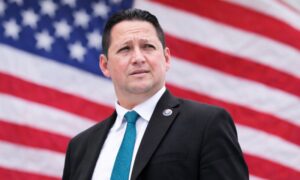America aspires to champion liberty and justice for all. Yet many LGBTQ+ individuals have long encountered prejudice and systemic barriers.
A genuine commitment to equality calls for a framework that safeguards human rights and promotes acceptance in every community.
Table of Contents
ToggleHistoric Milestones

The movement toward equality for LGBTQ+ communities did not appear overnight. Decades of legal battles, protests, and social reforms created a path where once there seemed to be only barriers.
Early Days and Court Decisions
According to Free Speech Center, in 1958, a significant legal precedent emerged through the Supreme Court’s ruling in One, Inc. v. Olesen, which affirmed that distributing gay-themed publications via the U.S. Postal Service was permissible.
That victory, although often overshadowed by other events, lit a small but vital spark for free expression.
Another milestone involved Lawrence v. Texas in 2003, which decriminalized consensual same-sex conduct and effectively ended sodomy laws that had been used to punish and stigmatize LGBTQ+ adults.
Over a decade later, Obergefell v. Hodges in 2015 expanded marriage rights across the nation, removing state-level barriers and validating the love shared by same-sex couples.
The Long Road Toward Legal Recognition
Court cases alone never suffice to reshape every aspect of society. It takes policy initiatives, grassroots advocacy, and cultural shifts to ensure that LGBTQ+ individuals experience respect and security.
The legal victories served as catalysts, igniting momentum that continues to guide progressive changes.
Ongoing Policy and Legislative Initiatives

Momentum toward a more welcoming environment for LGBTQ+ communities remains a top priority for many leaders. Steps at the federal level have influenced every sphere of life, from military service to healthcare.
Federal Efforts and Executive Orders
On his very first day in office, President Biden issued an executive order seeking to prevent discrimination on the basis of sexual orientation or gender identity.
That directive compels federal agencies to enforce non-discrimination policies in employment, education, housing, and other essential areas.
The aim is clear: no one should face unjust treatment while seeking a job, renting an apartment, or attending school.
Military Service and Healthcare
Early in 2021, the administration reinstated the right of transgender individuals to serve openly in the military, reversing a previous policy that banned them from doing so, as per U.S. Army.
That move underscored the principle that anyone who can meet the demands of service deserves an opportunity to enlist and defend the nation.
Additional steps within the Department of Health and Human Services restored protections for LGBTQ+ communities under the Affordable Care Act.
That measure set an expectation that hospitals, clinics, and insurance providers must provide services without bias based on sexual orientation or gender identity.
Healthcare professionals are also receiving stronger guidance to ensure that every patient is treated with dignity and compassion.
International Advocacy
Elected leaders have recognized the need for global advocacy by mandating that federal agencies prioritize LGBTQ+ human rights abroad.
Embassies and international programs are incorporating equality into daily operations, striving to protect lives in places where individuals can still be imprisoned—or far worse—due to their identity.
Diplomatic engagement on this front seeks to maintain America’s stance as a champion of human rights worldwide.
Persistent Challenges

Progress never comes without hurdles. Certain aspects of LGBTQ+ rights remain under threat, often due to conflicting policies at various levels of government or shifts in public perception.
State-Level Restrictions
Numerous states have proposed or passed legislation that limits the rights of transgender individuals. Sports participation and gender-affirming healthcare have generated wide-ranging debates.
Advocacy groups worry that state laws can counteract federal protections, creating an inconsistent patchwork of legal guidelines.
Discrimination and Violence
Violence against LGBTQ+ citizens, particularly transgender women of color, continues at an alarming rate.
Community organizations track hate crimes and offer legal assistance, but solutions require comprehensive laws, better reporting systems, and stronger support networks.
Educational Environment
Curriculum content dealing with LGBTQ+ themes sparks conflict in multiple regions. Some parents and educators champion inclusive lessons, believing that young people benefit from a complete, respectful portrayal of diverse families and identities.
Others voice concerns, claiming that conversations about gender identity or sexual orientation in classrooms are inappropriate.
Advocates note that a balanced, fact-driven approach encourages empathy among students and can help reduce bullying.
Global Perspective
The United States influences discussions on LGBTQ+ rights worldwide. Policymakers and nonprofits coordinate efforts to assist those fleeing persecution or seeking more inclusive environments.
Refugee Resettlement Initiatives
Programs such as the “Welcome Corps” offer vital lifelines to refugees escaping hostile environments. Individuals who identify as LGBTQ+ often face compounded risks in regions where harsh laws, social stigma, or mob violence are common.
By supporting resettlement, the U.S. opens doors for those who would otherwise face grave danger in their home countries.
According to AP News, Cabrel Ngounou, a young man from Cameroon, escaped severe anti-LGBTQ+ persecution and, through the support of the “Welcome Corps,” resettled in San Francisco, where he received guidance and resources to rebuild his life.
Diplomatic Engagement
In many international forums, American representatives speak out in favor of equal treatment.
Diplomatic channels, combined with partnerships involving global organizations, work to help decriminalize same-sex relationships, ensure fair workplace policies, and provide broader protections for all gender identities abroad.
Though progress differs by region, dedicated advocacy keeps human rights on the global agenda.
Toward a More Comprehensive Legal Framework

Leading activists and legal experts emphasize the importance of comprehensive protections at the national level. Fragmented statutes often leave vulnerable groups open to discrimination in housing, employment, education, and public accommodations.
A key piece of legislation known as the Equality Act could address those gaps by clarifying anti-discrimination provisions and creating consistent standards across the United States.
Key Goals of a Stronger Framework
- Housing Protections: Renters and prospective homeowners often face bias when landlords or sellers make judgments based on perceived orientation or gender identity. A clear legal standard would bolster existing fair housing regulations.
- Employment Safeguards: Federal law prohibits bias in many workplaces, but that coverage needs further clarity to protect LGBTQ+ workers fully in all states and territories.
- Health and Welfare: Insurance companies, hospitals, and clinics benefit from transparent regulations that specify inclusive best practices, such as respect for chosen names and pronouns.
- Educational Policies: Schools need guidelines that allow students to feel safe. Anti-bullying rules and inclusive curricula can empower LGBTQ+ youth while fostering empathy among peers.
Community Engagement and Education

Legislative change matters, but laws alone won’t transform culture. Grassroots organizations, educators, and individuals play a key role in shaping attitudes and practices that uphold the humanity of LGBTQ+ residents.
Emphasizing Public Outreach
Awareness campaigns can reduce stigma and shift societal norms. Town halls, art exhibits, and documentary screenings create space for honest conversations, prompting neighbors to learn from one another’s experiences.
Speaking with LGBTQ+ individuals can open minds more effectively than any abstract statement on equality.
Inclusive School Initiatives
When schools embrace inclusivity—through curriculum, clubs, and training for counselors—students often grow into more compassionate adults.
Empathy lessons can highlight family diversity and respectful communication, planting seeds of understanding and acceptance early in life.
Intersectional Work
LGBTQ+ communities intersect with many other groups that experience discrimination, including people of color, immigrants, and individuals with disabilities.
Addressing injustices through an intersectional lens ensures that policy solutions and community programs leave no group behind. Collaboration among civil rights advocates can transform local communities into supportive environments where everyone has a voice.
Resources and Support Services
View this post on Instagram
A post shared by Gay Therapy Center | LGBTQ+ Therapists for LGBTQ+ People (@gaytherapycenter)
Disparities in healthcare, employment, and legal support can intensify the marginalization LGBTQ+ communities face. Bolstering services around the nation helps close those gaps, improves mental health outcomes, and promotes stability.
- Legal Aid: Pro-bono services and LGBTQ+ legal advocacy centers can guide individuals facing housing disputes, job discrimination, or family court matters.
- Mental Health: Therapy with counselors trained in LGBTQ+ issues provides relief for those struggling with anxiety, depression, or the effects of bullying.
- Community Centers: Neighborhood hubs offer safe gathering spaces, social programs, and educational workshops. They often include job placement programs and training sessions for both youth and adults.
The Road Ahead & Unified Action
A thriving democracy is built on the notion that all citizens deserve equal respect and opportunities. Legislative achievements, executive orders, and judicial decisions mark essential steps forward.
At the same time, determined activism, cultural shifts, and everyday interactions lay the foundation for transformative progress.
1. Continued Advocacy
Groups dedicated to equality must maintain pressure on local, state, and federal officials. Calls for comprehensive legislation, stable funding for community programs, and stronger hate crime laws all push society in a more equitable direction.
2. Education and Public Awareness
Empathy-building starts in homes, classrooms, and social circles. Initiatives that promote honest conversation help reduce hostility and misunderstanding, making it more likely that future generations will prioritize inclusion.
3. Intersectional Organizing
Collaborations with racial justice groups, disability advocates, and immigrant rights movements can lead to broad-based alliances. When communities unite around shared goals, the collective strength can overcome roadblocks in policy and public opinion.
4. Global Responsibility
Maintaining leadership in global affairs includes standing up for the rights of LGBTQ+ individuals in regions where hostility remains strong. Diplomatic efforts, asylum policies, and humanitarian aid must reflect compassion for those who face persecution abroad.
Summary
America’s commitment to fairness can only be measured by how it treats every resident. Over the decades, the LGBTQ+ movement has propelled significant change, including landmark court decisions and sweeping policy efforts.
That transformation is still in progress, and ongoing work will determine how inclusive the nation will become. By championing a comprehensive framework and supporting grassroots endeavors, communities can plant seeds of empathy and respect for every person.
Momentum remains strong. Advocates and allies across the country believe that the nation’s ideals shine brightest when LGBTQ+ rights are fully recognized and protected. Through united effort, a more welcoming America can become a lasting reality for everyone.
Related Posts:
- Safest Countries in the World in 2025 - GPI…
- 25 Most Dangerous Cities in US - Updated Statistics for 2026
- The Hidden Boundaries of Free Speech in Modern Democracies
- Capital Cities in Europe: Top Destinations For You…
- America's Murder Capitals: A 2026 Ranking of the…
- From Stonewall to Today - The Journey of LGBTQ+…








